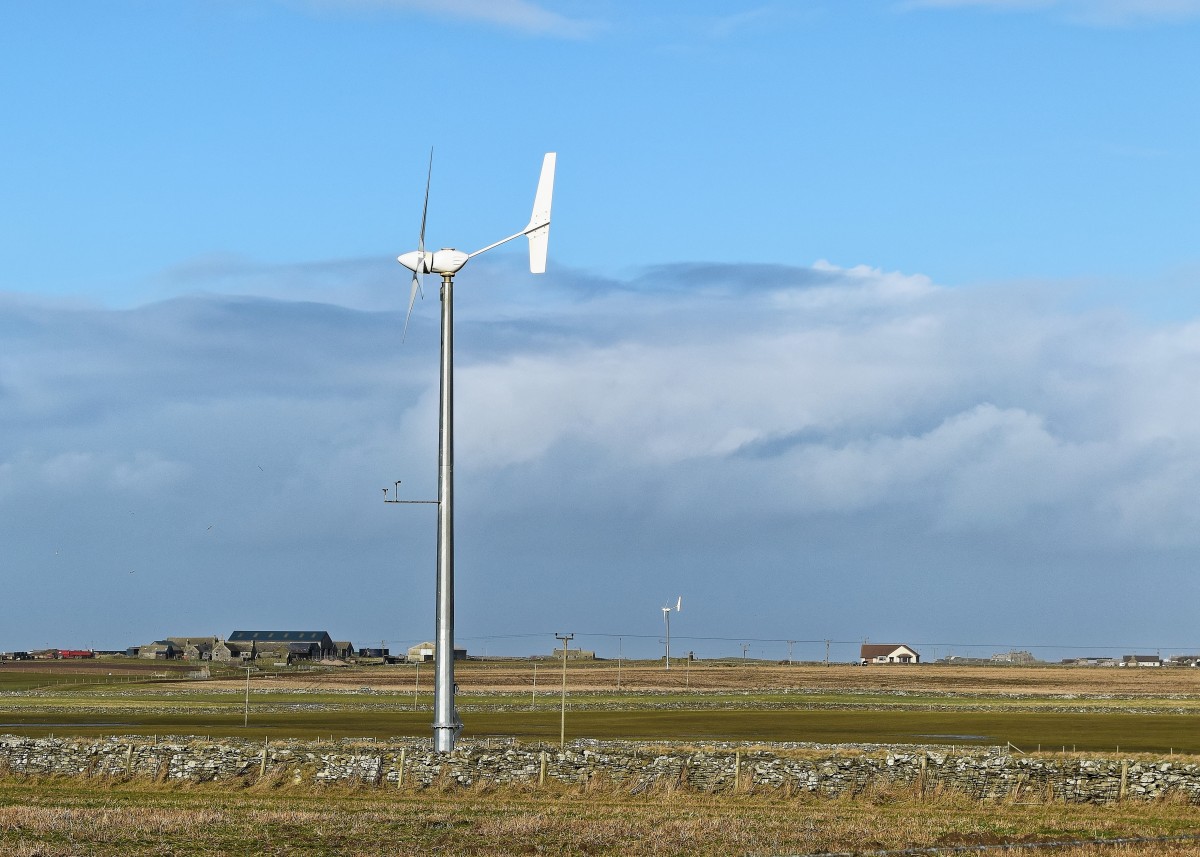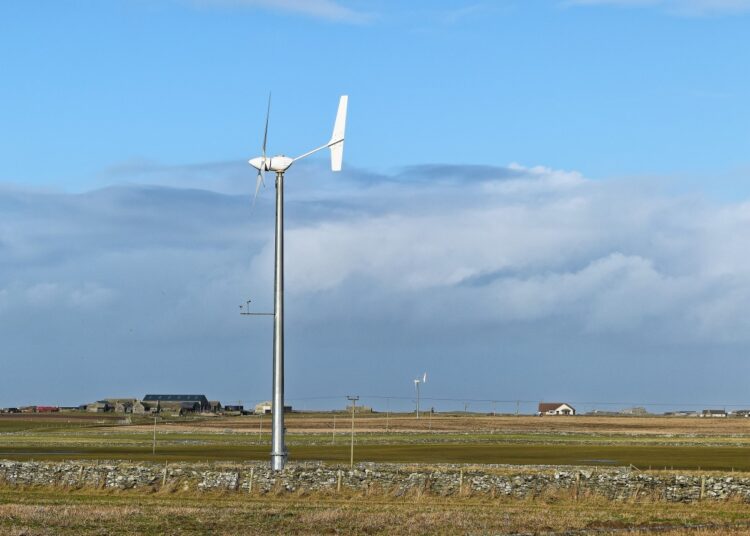The modern workforce landscape is experiencing a fundamental transformation as environmental consciousness becomes increasingly central to business operations and career development. Career and Technical Education (CTE) programs are evolving to meet the growing demand for professionals who possess both technical expertise and environmental stewardship capabilities. This shift represents not merely a trend but a necessary evolution in how we prepare the next generation of workers for meaningful, long-lasting careers that contribute positively to our planet’s future.
Sustainable CTE career paths offer students and career changers unique opportunities to combine practical skills with environmental responsibility. These pathways lead to professions that not only provide stable employment and competitive compensation but also contribute to solving some of humanity’s most pressing environmental challenges. From renewable energy installation to sustainable agriculture, green building design to environmental conservation management, the possibilities are vast and continually expanding.
Understanding the Green Economy Revolution
The green economy encompasses all economic activities that contribute to environmental sustainability while generating employment and economic growth. This sector has experienced exponential growth over the past decade, with projections indicating continued expansion well into the future. According to various labor market analyses, green jobs are among the fastest-growing occupational categories across multiple industries and geographic regions.
What makes these career paths particularly attractive is their resilience to economic fluctuations and technological obsolescence. As governments worldwide implement stricter environmental regulations and consumers increasingly demand sustainable products and services, professionals with green skills find themselves in consistently high demand. This demand spans across traditional industries undergoing environmental transformation and entirely new sectors emerging to address climate challenges.
The green economy revolution is not limited to traditionally “environmental” fields. Instead, sustainability principles are being integrated into virtually every industry sector, from manufacturing and construction to healthcare and information technology. This integration creates diverse opportunities for individuals with varying interests, aptitudes, and educational backgrounds to contribute to environmental sustainability while pursuing fulfilling careers.
Renewable Energy: Powering Tomorrow’s Workforce
Solar Energy Careers
The solar energy sector represents one of the most dynamic and rapidly expanding areas within sustainable CTE pathways. Solar photovoltaic installers, who design and implement solar panel systems for residential, commercial, and industrial applications, are experiencing unprecedented demand. These professionals require technical knowledge of electrical systems, construction principles, and solar technology, all of which can be acquired through specialized CTE programs typically lasting between six months to two years.
Beyond installation, the solar industry offers careers in system design, sales and consultation, maintenance and repair, and quality assurance. Solar energy consultants assess properties for solar potential, design customized systems, and help clients navigate financial incentives and permitting processes. System maintenance technicians ensure optimal performance through regular inspections, cleaning, and repairs, providing ongoing service that generates long-term employment stability.
The compensation in solar careers is competitive, with entry-level positions offering solid starting wages that increase substantially with experience and specialized certifications. Many solar professionals eventually establish their own contracting businesses, leveraging their technical expertise and industry connections to build profitable enterprises while contributing to clean energy adoption.
Wind Turbine Technology
Wind turbine technicians, often called windtechs, work on the massive structures that harness wind power to generate electricity. This career requires individuals who are comfortable working at significant heights, possess strong mechanical and electrical skills, and can perform detailed diagnostic and repair work on complex machinery. CTE programs in wind energy technology typically combine classroom instruction with hands-on training, often including tower climbing certification and safety protocols.
The working conditions for wind technicians are unique, involving outdoor work in various weather conditions and frequent travel to wind farm locations. However, the career offers excellent compensation, particularly for those willing to work in remote or offshore locations. Additionally, as wind farms require continuous monitoring and maintenance, these positions provide exceptional job security.
Career advancement opportunities in wind energy extend beyond field technician roles. Experienced professionals can progress to supervisory positions, project management, quality control, or specialize in emerging areas like offshore wind installation and maintenance, which commands premium compensation due to the specialized skills required.
Energy Efficiency Specialists
Energy efficiency represents a critical component of sustainable development, and specialists in this field help buildings, businesses, and industrial facilities reduce their energy consumption and environmental impact. Energy auditors assess how buildings use energy, identify inefficiencies, and recommend improvements. Building performance analysts use sophisticated diagnostic equipment and software to evaluate building systems and develop comprehensive efficiency strategies.
CTE programs for energy efficiency careers typically cover building science, HVAC systems, thermodynamics, diagnostic testing procedures, and energy modeling software. Many programs also include training in relevant certifications such as Building Performance Institute (BPI) or RESNET Home Energy Rater credentials, which significantly enhance employment prospects and earning potential.
The work environment for energy efficiency professionals varies considerably, including office-based analysis, field inspections, and client consultations. This variety appeals to individuals who prefer diverse work experiences over repetitive routines. Furthermore, as building codes increasingly emphasize energy performance and consumers seek to reduce utility costs, demand for these professionals continues growing steadily.

Sustainable Construction and Green Building
Green Building Design and Construction
The construction industry is undergoing a significant transformation toward sustainability, creating numerous career opportunities for individuals trained in green building principles and practices. Green building technicians and specialists understand how to construct structures that minimize environmental impact through efficient resource use, renewable materials, and optimized energy performance.
CTE programs in sustainable construction cover topics including green building rating systems like LEED and Living Building Challenge, sustainable materials selection, energy-efficient building envelope design, renewable energy integration, water conservation systems, and indoor environmental quality. Students learn both traditional construction skills and specialized knowledge about innovative sustainable building techniques.
Career paths in green construction range from specialized trades like eco-friendly insulation installation and geothermal system installation to project coordination roles that ensure projects meet sustainability standards. Many professionals pursue credentials like LEED Green Associate or LEED AP, which significantly enhance career prospects and demonstrate expertise to employers and clients.
Sustainable Architecture Technology
Architectural technicians who specialize in sustainable design support architects in creating environmentally responsible buildings. These professionals use computer-aided design (CAD) and building information modeling (BIM) software to develop technical drawings and specifications that incorporate sustainable design principles, energy modeling, and environmental performance analysis.
Training for sustainable architecture technology typically requires two-year associate degree programs that combine design principles, technical drafting skills, sustainability concepts, and construction technology. The curriculum often includes hands-on projects that challenge students to solve real-world design problems while meeting stringent environmental performance targets.
Employment opportunities exist with architectural firms, construction companies, government agencies, and sustainability consulting firms. As building codes increasingly mandate environmental performance standards and clients demand more sustainable structures, professionals with expertise in sustainable design technology find themselves well-positioned for career advancement and competitive compensation.
Retrofitting and Building Renovation Specialists
While new green construction receives considerable attention, the majority of buildings that will exist in coming decades are already constructed. This reality creates substantial demand for professionals who specialize in retrofitting existing structures to improve their environmental performance. Retrofit specialists assess older buildings, identify opportunities for efficiency improvements, and implement upgrades that reduce energy consumption, water use, and environmental impact.
CTE programs focusing on building retrofitting combine traditional trades skills with specialized knowledge of energy-efficient technologies, building diagnostics, and renovation techniques appropriate for various building types and ages. Students learn to work within the constraints of existing structures while implementing meaningful sustainability improvements.
This career path offers particular appeal because it addresses immediate environmental needs while preserving embodied energy in existing structures. Professionals in this field often work on diverse projects, from historic building preservation with sustainability enhancements to large-scale commercial building upgrades, providing variety and intellectual challenge.
Environmental Science and Conservation Careers
Environmental Technicians
Environmental technicians play crucial roles in monitoring environmental quality, conducting field investigations, collecting samples, and analyzing data that informs environmental protection efforts. These professionals work for government agencies, consulting firms, industrial facilities, and nonprofit organizations, ensuring compliance with environmental regulations and identifying pollution sources.
CTE programs for environmental technicians typically require two years and cover environmental science fundamentals, laboratory techniques, field sampling methods, environmental regulations, data analysis, and report writing. Many programs include internships or cooperative education experiences that provide valuable hands-on experience and professional connections.
The work environment varies considerably depending on specialization. Water quality technicians may spend time collecting samples from rivers, lakes, and treatment facilities. Air quality technicians monitor atmospheric conditions and emissions from industrial sources. Soil and hazardous waste technicians investigate contaminated sites and assist with remediation projects. This diversity allows individuals to find niches that match their interests and preferred working conditions.
Wildlife and Conservation Management
Conservation technicians and wildlife management specialists work to protect natural habitats, manage wildlife populations, and restore damaged ecosystems. These careers appeal to individuals passionate about preserving biodiversity and natural environments while providing essential services that benefit both wildlife and human communities.
Training for conservation careers through CTE programs covers ecology, wildlife biology, habitat management techniques, geographic information systems (GIS), conservation planning, and environmental education. Many programs emphasize fieldwork, providing students with practical experience in habitat assessment, wildlife monitoring, and ecological restoration techniques.
Career opportunities exist with government agencies like the U.S. Fish and Wildlife Service, state natural resource departments, nonprofit conservation organizations, and private land management companies. Positions range from field technician roles involving hands-on conservation work to coordinator positions involving program management, stakeholder engagement, and conservation planning.
Environmental Remediation Specialists
Environmental remediation specialists focus on cleaning up contaminated sites, including former industrial facilities, hazardous waste sites, and areas affected by chemical spills. This critical work protects human health and environmental quality while enabling contaminated properties to return to productive use.
CTE programs in environmental remediation technology teach students about contaminant behavior, remediation technologies, regulatory requirements, safety protocols, and project management. The curriculum often includes hazardous materials handling certification, confined space entry training, and other specialized safety credentials essential for this type of work.
Employment in environmental remediation offers job security due to the vast number of contaminated sites requiring cleanup and ongoing regulatory requirements for environmental protection. The work can be physically demanding and involves careful attention to safety protocols, but it provides the satisfaction of directly contributing to environmental restoration and community health protection.
Sustainable Agriculture and Food Systems
Organic Farming and Sustainable Agriculture
As consumer demand for organically grown and sustainably produced food continues increasing, career opportunities in sustainable agriculture are expanding. Sustainable agriculture technicians and farm managers apply ecological principles to food production, minimizing chemical inputs, protecting soil health, conserving water, and promoting biodiversity.
CTE programs in sustainable agriculture cover soil science, organic farming methods, integrated pest management, crop rotation strategies, composting and soil amendment, water conservation techniques, and farm business management. Many programs operate teaching farms where students gain practical experience with various sustainable farming practices.
Career paths include farm management positions, agricultural consulting, organic certification inspection, and entrepreneurship through starting or managing sustainable farms. While agricultural work is physically demanding and weather-dependent, it offers the satisfaction of producing healthy food while caring for the land, along with increasing recognition and compensation as sustainable practices become more mainstream.
Urban Agriculture and Community Gardens
Urban agriculture represents an innovative approach to food production that brings farming into cities, utilizing rooftops, vacant lots, vertical growing systems, and community garden spaces. Urban agriculture specialists design and manage these systems, teaching community members about food production while addressing food security issues in urban areas.
Training for urban agriculture careers combines horticultural knowledge with community development skills, understanding of urban systems, and innovative growing techniques like hydroponics, aquaponics, and vertical farming. Programs often emphasize the social dimensions of urban agriculture, including food justice, community engagement, and youth education.
Employment opportunities exist with nonprofit organizations, municipal governments, schools, and social enterprises dedicated to urban food production. Many urban agriculture professionals also establish their own businesses, operating urban farms, providing design and installation services for rooftop gardens, or offering educational programs.
Agricultural Technology and Precision Farming
Modern agriculture increasingly relies on technology to optimize production while minimizing environmental impact. Precision agriculture technicians use GPS, drones, sensors, and data analytics to help farmers make informed decisions about planting, irrigation, fertilization, and pest control. This approach reduces input costs, minimizes environmental impact, and improves yields.
CTE programs in agricultural technology teach students about agricultural equipment, GPS and GIS technologies, drone operation and data interpretation, sensor networks, and data management systems. These programs appeal to individuals interested in both agriculture and technology, offering a unique blend of outdoor work and technological innovation.
Career opportunities include positions with agricultural technology companies, equipment dealerships, large farming operations, and agricultural consulting firms. As agriculture continues becoming more data-driven and technologically sophisticated, professionals with expertise in agricultural technology find themselves increasingly valuable to the industry.
Water Resource Management and Conservation
Water Treatment and Quality Specialists
Clean water is essential for human health and environmental quality, and water treatment operators ensure that drinking water meets safety standards and wastewater is properly treated before discharge. These professionals operate sophisticated treatment facilities, monitor water quality, maintain equipment, and ensure compliance with regulatory requirements.
CTE programs for water treatment operators typically require one to two years and cover water chemistry, treatment processes, laboratory analysis, facility operations, and regulatory compliance. Most states require water operators to obtain certification through examination, with higher-grade certifications enabling operators to work at larger facilities and command higher compensation.
Employment in water treatment offers exceptional job security, as communities always require safe drinking water and wastewater treatment regardless of economic conditions. The work environment typically involves both indoor control room operations and outdoor equipment maintenance, providing variety while working in clean, professional settings.
Irrigation and Water Conservation Technology
As water scarcity becomes increasingly concerning in many regions, professionals who specialize in efficient irrigation systems and water conservation technologies are in growing demand. Irrigation technicians design, install, and maintain systems that deliver water efficiently to landscapes, agricultural fields, and golf courses while minimizing waste.
Training for irrigation careers covers hydraulics, irrigation system design, soil and plant water requirements, irrigation controllers and automation, water conservation principles, and business operations. Many programs prepare students for industry certifications like Certified Irrigation Technician or Certified Landscape Irrigation Auditor.
Career opportunities include employment with landscape companies, irrigation specialty contractors, golf courses, municipalities, and agricultural operations. Experienced professionals often establish their own irrigation businesses, leveraging technical expertise and industry connections to build successful enterprises while promoting water conservation.
Hydrological Technology and Watershed Management
Hydrology technicians support water resource management by collecting data about water quantity and quality, monitoring stream flows, measuring groundwater levels, and analyzing how water moves through watersheds. This information is essential for water resource planning, flood prediction, and environmental protection.
CTE programs in hydrological technology teach students about the water cycle, stream monitoring techniques, groundwater assessment, watershed analysis, GIS applications in hydrology, and data collection and analysis methods. Field experience is emphasized, as much of this work occurs outdoors in various weather conditions.
Employment exists with government agencies, consulting firms, water utilities, and research organizations. The work provides variety through different project locations and types, along with the satisfaction of contributing to water resource protection and management.

Waste Reduction and Recycling Management
Recycling and Materials Management
As society moves toward circular economy principles, professionals who understand materials management, recycling operations, and waste reduction strategies are increasingly valuable. Recycling coordinators and materials management specialists develop and implement programs that maximize material recovery, reduce waste generation, and promote sustainable consumption patterns.
CTE programs in waste management and recycling cover waste stream analysis, recycling technologies, composting operations, hazardous waste handling, program development and management, and public education strategies. Students learn both the technical aspects of materials processing and the social dimensions of behavior change.
Career opportunities include positions with municipal recycling programs, waste management companies, manufacturing facilities seeking to reduce waste, and nonprofit organizations promoting zero waste initiatives. Many professionals in this field appreciate the direct environmental impact of their work in reducing landfill waste and conserving natural resources.
Composting and Organic Waste Management
Organic materials constitute a substantial portion of the waste stream, and composting professionals help divert these materials from landfills while creating valuable soil amendments. Compost facility operators manage the biological process that transforms organic waste into finished compost, monitoring conditions, managing equipment, and ensuring product quality.
Training for composting careers covers the science of decomposition, facility operations, equipment maintenance, quality control, regulatory compliance, and compost applications. Some programs also include vermicomposting (worm composting) and other specialized organic waste processing techniques.
Employment opportunities exist with composting facilities, municipalities, landscaping companies, and agricultural operations. As more communities and businesses implement organic waste diversion programs to meet waste reduction goals, demand for qualified composting professionals continues growing.
Conclusion: Building a Sustainable Career Future
Sustainable CTE career paths offer exceptional opportunities for individuals seeking meaningful work that combines technical skills, environmental stewardship, and economic security. These careers address critical environmental challenges while providing stable employment, competitive compensation, and opportunities for advancement and entrepreneurship.
The diversity of sustainable career pathways ensures that individuals with varying interests, abilities, and educational goals can find appropriate options. Whether working outdoors with hands-on technical tasks or in offices analyzing data and developing plans, whether focusing on renewable energy, sustainable construction, conservation, or waste reduction, opportunities abound for those willing to acquire the necessary skills and knowledge.
As environmental awareness grows and sustainability becomes increasingly central to economic activity, professionals with green skills will find themselves positioned at the forefront of the workforce transformation. CTE programs provide accessible pathways to these careers, offering practical training, industry connections, and credentials that employers value.
For students, career changers, and anyone seeking purposeful work that contributes to a more sustainable future, exploring sustainable CTE pathways represents an investment in both personal success and planetary health. The time to begin this journey is now, as the green economy continues expanding and the demand for skilled environmental professionals grows stronger each year.






